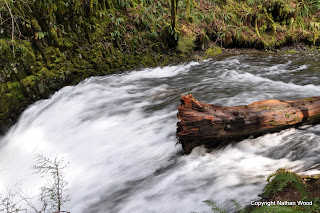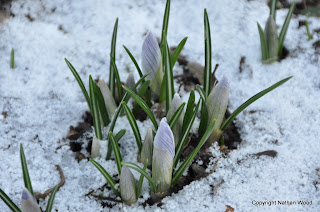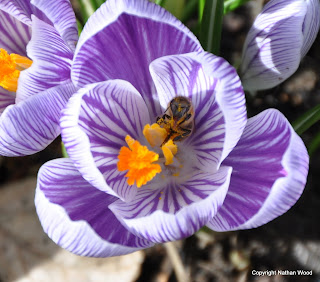Beth, the kids, and I were having a great time kayaking the Yaquina Bay in Newport. The weather was perfect, traffic in the bay was minimal, and everyone was excited for another outing on the water. We put into the bay just north of the Hatfield Marine Science Center and began paddling east into the bay. The gentle flood tide helped to carry us along.
The tide level was quite low. The kids were able to see clams in the few inches of water we were paddling in. The mud flats, barely covered in sea water, stretched out several hundred yards to the shore line. At least two dozen great blue herons were picking there way through the flats looking for lunch. The paddling was great, but we didn't have a good place to let the kids out for a stretch. After we had been out for about 1.5 hours Aaron started getting antsy. Given that we didn't have any place to let the kids out, Beth and I decided to turn around and head back. The tide had not turned back yet, but we didn't have the time to wait. Aaron was not going to last that long. About 10 minutes into the return trip was all Aaron could handle. Not known for his patience (being 2.5 yrs old at the time), Aaron starting crying up a storm. He wanted off the boats and he wanted it NOW. In that moment Beth and I stopped thinking like kayakers and start thinking like parents with an upset child.
It has always been our habbit of removing our kids from situation when they are having problems. In the store, resturaunt, or other places one of us will remove the child who is having problems and deal with the issue to calm them down outside of the environment which may have caused or contributed to their problem. In this case being on the boat for too long was the cause and the solution was to get off. The only place to get off was back were we launched the boats. Given that I am the stronger paddler in the faster boat, Beth asked me to take Aaron and head back as fast as I could. She would follow behind. Focusing on the state of distress Aaron was in I agreed and took off as fast as I could, keeping in mind that I could not exhaust my body halfway there. Even with no sight-seeing and going full speed I was an easy 30 minutes away from landing the boat. This is the point where we made a bad situation worse.
Most really good problems are caused by a series of mistakes/events that all intersect in space and time. I have found that it generally takes about 3 mistakes/events to create a crisis.
Mistake #1
We were too far away from a put-in to give the kids a break. While Patrick can handle it (but may not be happy about it), Aaron is not old enough to handle long paddling outings. We had planned on staying close enough to the shore to let the kids out, but with the low tide there was an easy hundred yards of mud flats between us and the bank.
Mistake #2
We split up. We piled both kids in my kayak so that I could get them back to the beach. When Aaron started having problems we started thinking like parents and not like kayakers. I was wearing a tow rope that I would have hooked up to Beth's boat had she been having a hard time paddling, but the problem we were fixing was not her ability to paddle, or keep up. We were taking care of a child who had been on the boat long enough.
Mistake #3
Beth tried to keep up. She pushed her ability beyond what she could sustain. Disregarding all other elements, her sit-on-top kayak was just not going to go as fast as the rest of us were in the tandem. Complicated by the tide going against us, Beth exhausted herself while still having a good distance left to go. While I kept looking over my shoulder at her, I was too far away to see that she was having problems. She was able to make it back to the shore unassisted but she would not have made it much further.
Lesson #1
Be more aware of time and distance for the kids needs. There was nothing wrong with the location of our outing, but we should have been more aware of the time needed to get to shore. We were enjoying the area so much that we lost track of how long we were on the water and how far we had to go. We would have been better off identifying that there was no good location to let the kids out and paddling around closer to our launch point.
Lesson #2
Never split up. I had a tow belt, but I didn't think to use it as Beth was not having a problem paddling. I could have hooked up to her boat and towed her and Aaron while she stopped paddling to take care of Aaron. In any event staying together would have helped us avoid bigger problems even though one of our kids was no longer having a good time.
Lesson #3
Pace yourself for the distance needed to travel. As I was pulling away, Beth felt the need to push herself harder to keep up. Focusing on my kayak instead of our final destination made her push her physical limits beyond what she could sustain.
In the end we got lucky and nothing else happened to make the complicated situation an honest disaster. Had Beth's situation turned into a rescue, I would have been too far away to assist and with Aaron already having problems, getting back to her would have been challenging.
Until we had a need to get to shore quickly, the outing was great. Yaquina Bay is a great place to paddle and is a great family outing. Just be aware that depending on where you go in the bay there can be extensive mud flats during very low tides which makes it impossible to give the little ones escape time. Although the clamming would have been great.





























